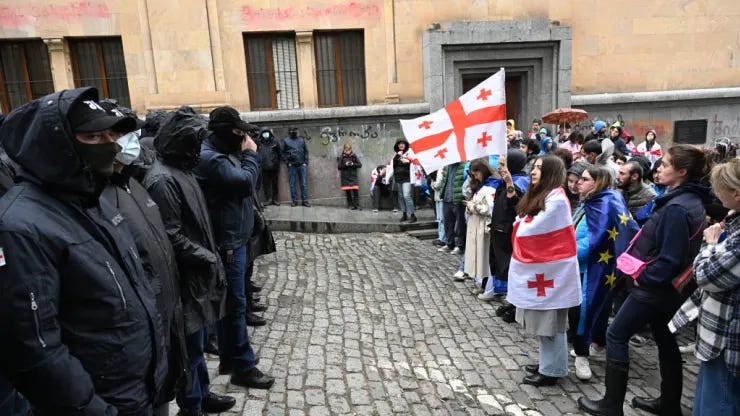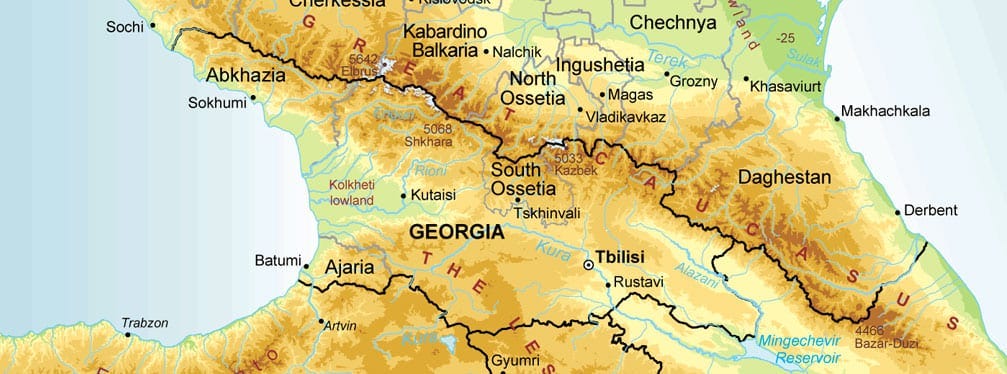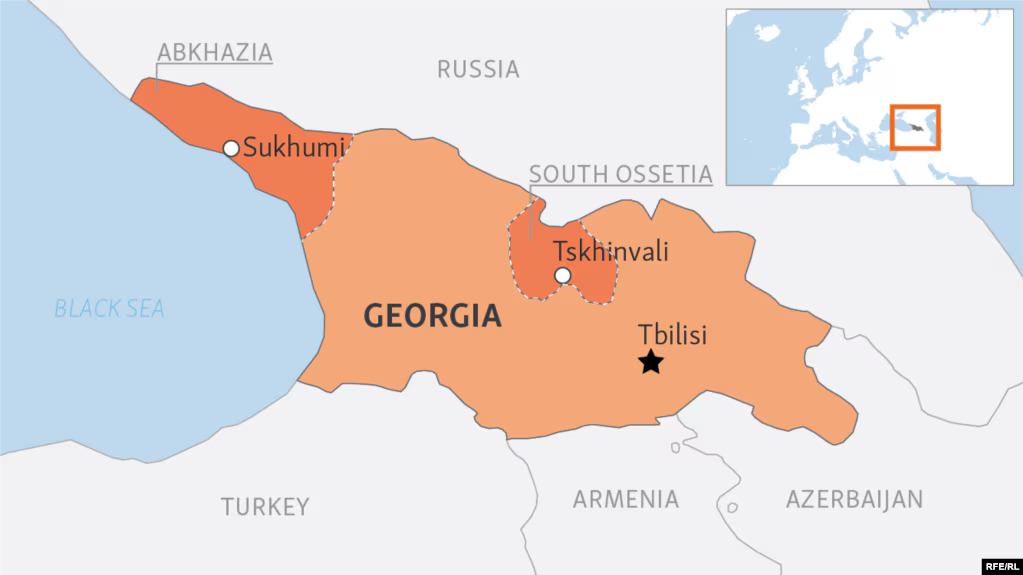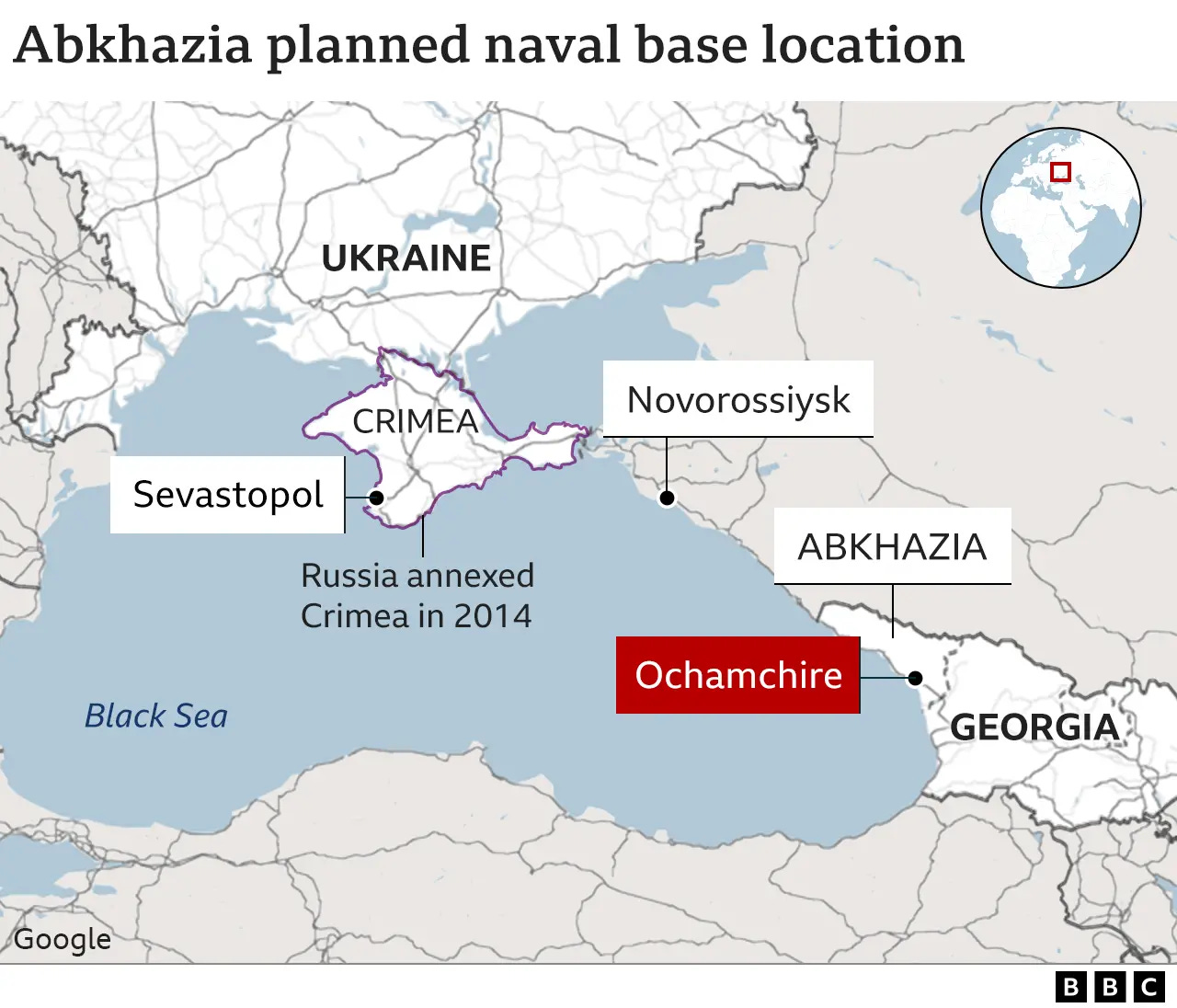Georgia at a Crossroads
Once a fiercely independent regional dealmaker, Georgia is once again falling under Russia's influence. Its people are apparently not happy about it.
Protesters and police standoff in the street of Tbilisi amid the controversial adoption of the “foreign agents” law. Image source
On May 14 – 15, tens of thousands took to the streets in the Georgian capital of Tbilisi, disrupting traffic near the national parliament where lawmakers debated the controversial “foreign agents bill”. Police used tear gas to disperse some gatherings, detaining dozens of people. These were the latest protests against the controversial bill, which passed into law on May 15 following weeks of demonstrations. The new law requires that media companies and non-governmental organizations (NGOs) officially register as “pursuing the interests of a foreign power” if they receive over 20% of their funding from abroad. Critics allege that the bill is a Moscow-sponsored plot to subvert dissent in Georgia, given similar legislation in Russia.
The Georgian government’s adoption of the controversial bill has amplified Western fears of growing Russian interference in the country. On May 14, Washington announced it would pull development funding from Georgia and threatened members of the Georgian government with sanctions if the bill passed. Meanwhile, the EU made an official statement claiming the bill negatively impacts Georgia’s progress towards EU membership. These growing concerns come amid an apparent Russian campaign to gain regional influence, such as cyber and disinformation attacks in Moldova in recent months. In this way, the recently adopted Georgian bill potentially signals the country’s slip into Moscow’s orbit and could have far-reaching regional consequences.
Background
With Russia to its north and Turkey and Iran to its southwest and southeast, respectively, Georgia has stood at the crossroads of empires for centuries. Image source
Strategically located at the intersection of Europe and Asia in the mountainous and climactically temperate South Caucasus region, the history of the Georgian people stretches to antiquity. Throughout this time, Georgia has stood at the crossroads of empires, facing centuries of incursions by the various dynasties of Persia and the Ottoman Turks before falling to the Russian Empire in the early 19th century. Although Georgia briefly gained independence following the 1917 Russian Revolution, it fell under Soviet control less than three years later, only regaining independence in 1991.
Today, Georgia’s position at the eastern end of the Black Sea further puts it at the center of emerging trade routes, the largest of which being the 4,764-kilometer Middle Corridor, the shortest route between China and Europe. Although currently modest, the World Bank predicts that trade flows through this region will triple by 2030. To Georgia’s north and northeast is Russia, with whom it has shared tense relations since the 1991 disillusion of the Soviet Union due to Moscow’s support for secessionist movements in the nominally Georgian regions of South Ossetia and Abkhazia.
In 2008, Russia went to war with Georgia over Moscow’s perception that Tbilisi had violated several of its red lines, including a NATO declaration promising Georgian membership that year. Another factor was the 2004 election of President Mikheil Saakashvili, a figure widely perceived as anti-Russian who was intent on “making the country whole” by bringing South Ossetia and Abkhazia under Georgian control. Russia provoked Saakashvili into attacking its proxies in South Ossetia, then defeated the outmatched and outgunned Georgian troops in a series of battles that lasted five days and resulted in the deaths of 170 Georgian servicemen.
The defeat deeply scarred Georgia’s national consciousness. This military setback, coupled with widespread economic grievances and Saakashvili’s unpopular reforms, paved the way for the 2012 rise of the Georgian Dream party and its allies, which continue to rule the country today. Georgian Dream was founded by Bidzina Ivanishvili, a reclusive billionaire who made his fortune in Russia’s metals and banking sectors in the 1990s and served as the party’s first Prime Minister between 2012–2013. According to Western observers, Ivanishvili now steers the party from behind the scenes, having personally nominated current Prime Minister Irakli Kobakhidze at a special party congress on February 1.
Georgian Dream asserts that it favors EU membership and identifies with the bloc’s shared values. However, the ruling party also regularly diverts from EU stances on core issues, refusing to condemn Russia’s invasion of Ukraine, even though the vast majority of Georgians reportedly support the Ukrainian cause. Although the party claims to uphold democratic values, Georgia’s democratic backslide under Georgian Dream rule includes blatant attempts to politically influence the judiciary and proposals for anti-LGBTQ legislation.
Georgian Dream and Ivanishvili’s apparent links to Russian interests are at the heart of Moscow’s seemingly outsized influence in Tbilisi. According to Transparency International, Ivanishvili outright owned or held stakes in several Russian businesses until at least 2019 despite promising to divest from his Russian holdings in 2011. Several of Ivanishvili’s relatives have also been accused of doing business with high-ranking officials in Moscow, and a recently leaked audio recording allegedly includes business-related conversations between Ivanishvili and a Russian business magnate currently under US sanctions. Washington has also sanctioned individuals close to Ivanishvili for conspiring with Russian intelligence officials to further Moscow’s “malign influence” in Georgia.
These connections are significant to Georgia’s protesters, who are mostly young people disillusioned with the political status quo and concerned with Russia’s growing influence. The public outcry from this group successfully caused the bill to be pushed back when it was proposed in 2023, and their continued protests threaten the ruling party’s perceived legitimacy after over a decade in power. People aged 15 – 29 currently make up some 25% of Georgia’s population, although they are not the only demographic who apparently prefers the West over Russia. Last year, the International Republican Institute conducted a survey in which 89% of respondents said they “fully support” or “somewhat support” joining the EU. 79% also opposed visa-free travel for Russians, Russians registering businesses in Georgia, or purchasing property there.
Georgia’s breakaway regions of Abkhazia and South Ossetia (dark orange) are officially recognized and supported by Russia. Image source
Russia’s “active measures” in its backyard
Over the past decades, Russia has successfully deployed many tools to gain influence abroad. Collectively known as aktivnyye meropriyatiya—or “active measures” – these tools include disinformation campaigns, manipulation of foreign media assets, political action and agents-of-influence operations, and others. These measures have been particularly effective in former Soviet states in Europe and the Caucasus. For example, Russia ran a multi-year disinformation campaign that the US was basing or using bioweapons on Ukrainian soil, later repeating these claims at the UN Security Council in March 2022. Similarly, Russia reportedly channeled over $55 million in illicit funds to influence the outcomes of the 2023 local elections in Moldova.
Russia has a lengthy history of employing active measures in Georgia. Moscow has allegedly propped up Georgian criminal syndicates such as the Kutaisi gang, established around 20 sympathetic organizations in Georgia, conducted large-scale cyberattacks, and mainstreamed pro-Kremlin narratives. Georgia is also home to a growing number of statues of Georgian-born Soviet dictator Joseph Stalin, despite his being a highly polarising figure in the country.
Whether Russia played a role in introducing the “foreign agents” bill remains unclear. However, it is possible that the EU’s decision to grant Georgia candidate status in late 2023 played a role in reintroducing the bill earlier this year. Under the Trump administration, the US expanded its security cooperation with Georgia, selling Javelin missiles to the country and inking the US-Georgia General Security of Information Agreement. The EU also funds projects to improve election integrity in Georgia. These factors may have also compelled Russia to take provocative measures to prevent perceived Western encroachment in its sphere of influence.
Russia plans to construct a naval base in Abkhazia, expanding its influence in the Black Sea and potentially dashing Georgian geopolitical trade ambitions. Image source
Way forward
Although Georgian president Salome Zourabichvili has said she will veto the bill, Georgian Dream’s current parliamentary majority gives it the means to override her vote. The guaranteed passage of this law will likely deal a significant blow to civil society and independent organizations across the country. With protests unlikely to abate unless the bill is rolled back, the security situation could also deteriorate in the coming weeks. Political polarization is also at an all-time high, and the government is apparently using intimidation tactics and violence to curb dissent.
Tensions with the West will likely continue to mount. Although direct intervention by Russia is unlikely – especially as it remains embroiled in Ukraine – these tensions nonetheless open the door for further subversion by Moscow. In January, Russia announced plans to construct a Black Sea naval base in the breakaway republic of Abkhazia, potentially dashing Georgia’s ambitions to be part of the Middle Corridor trade route. Given the relatively low political cost of meddling in the Georgian political system, Russia may continue to gain influence there, especially as this latest bill passes into law and the West’s response is relatively muted. For this reason, the only thing standing in the way of Georgian Dream and Russia’s agenda now may be the protesters in the streets of Tbilisi.
Conclusion
Georgia faces a pivotal moment as the risk that authoritarianism and external meddling undoes years of democratic and social progress. Russia’s tightening grip on Georgia potentially limits EU ambitions in the region, halting decades of eastward expansionism by the bloc. It also threatens Georgia’s quest to shape its national identity outside of being a former Soviet state and its future as a geopolitical broker at the crossroads of Europe and Asia.








That's a fair analysis, except when you mentioned authoritarianism you were only referring to Russia. If Georgians think that aligning with the US Empire is anti-authoritarian, I suggest that they take a long, hard look at what Ukraine is right now.
All aligning with my government will bring Georgia is exploitation and death. They can make a far better deal with the Russians right now.
So we’ve heard from the thousands that are against the bill but, how many are for the bill?